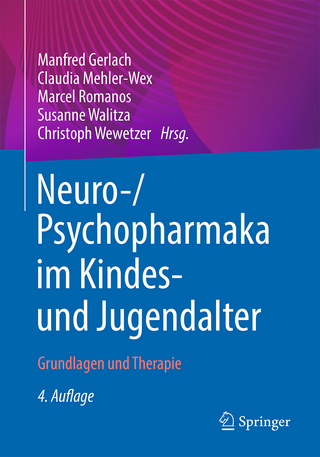
Neuronal Chloride Transporters in Health and Disease
Academic Press Inc (Verlag)
978-0-12-815318-5 (ISBN)
Dr. Tang is a Simons postdoctoral scholar at the Massachusetts Institute of Technology in Cambridge. As part of The Whitehead Institute for Biomedical Research, he is a member of Dr. Rudolf Jaenisch’s lab, a world-renowned pioneer of transgenic science and a Whitehead founding member. His current research focus is the identification of drugs and chemical compounds that increase KCC2 expression, a neuronal chloride transporter implicated in Rett syndrome, a severe autism spectrum disorder primarily affecting young girls. He is known in the neurodevelopment field for his seminal work with human stem cell-derived neurons linking a reduction in chloride transporter expression to Rett syndrome pathogenesis, providing compelling evidence that disruptions in neuronal chloride transporters and excitation/inhibition balance may be a main cause of autism. Dr. Tang holds a position at the Simons Center for the Social Brain and holds research funds from the Rett Syndrome Research Trust.
1. Introduction: A historic overview of chloride transporter research
Part I: Function of neuronal chloride transporters in regulating neuronal chloride homeostasis and brain development 2. Methods for investigating the activities of neuronal chloride transporters 3. The relationships between neuronal chloride transporter activities, GABAergic inhibition, and neuronal excitability 4. Chloride transporter activities shape early brain circuit development 5. Regulation of neuronal cell migration and cortical development by chloride transporter activities
Part II: Function of KCC2 in regulating excitatory synapse development 6. KCC2 regulates dendritic spine development 7. Transport-dependent and independent functions of KCC2 at excitatory synapses 8. KCC2 is a hub protein that balances excitation and inhibition
Part III: The molecular and cellular biology of neuronal chloride transporters 9. Structures of KCC and NKCC family of chloride transporters in relationship to their functions 10. Expression pattern of neuronal chloride transporter in different brain regions and sensory organs during development 11. Post-translational modification of neuronal chloride transporters 12. Protein interaction partners of neuronal chloride transporters 13. Genetic and environmental regulators of chloride transporter gene expression
Part IV: Linking neuronal chloride transporter deficiencies to nervous system diseases 14. The involvement of neuronal chloride transporter deficiencies in epilepsy 15. Deficiency in chloride transporter cause cardiac and respiratory abnormalities and SUDEP 16. Impaired chloride transporters following brain injury and cerebral palsy 17. WNK-SPAK/OSR1-CCC Signaling in Ischemic Brain Damage 18. The role of chloride transporters in neuropathic pain and spinal cord injury 19. Neuronal chloride homeostasis and nerve injury 20. Disruptions in Chloride transporters in autism spectrum disorders 21. Chloride transporters in early brain development and Down syndrome 22. Alterations in chloride transporter activity in stress and depression 23. The relationships between neuronal chloride transporters, brain aging, and neurodegenerative diseases
Part V: Development of therapies targeting neuronal chloride transporters 24. Gene therapy approaches to restore the expression levels of Chloride transporters 25. Utilization of NKCC1 blockers to treat brain disorders 26. Quest for pharmacological regulators of KCC2
| Erscheinungsdatum | 29.06.2020 |
|---|---|
| Verlagsort | San Diego |
| Sprache | englisch |
| Maße | 191 x 235 mm |
| Gewicht | 1540 g |
| Themenwelt | Medizin / Pharmazie ► Medizinische Fachgebiete ► Neurologie |
| Naturwissenschaften ► Biologie ► Humanbiologie | |
| Naturwissenschaften ► Biologie ► Zoologie | |
| ISBN-10 | 0-12-815318-0 / 0128153180 |
| ISBN-13 | 978-0-12-815318-5 / 9780128153185 |
| Zustand | Neuware |
| Haben Sie eine Frage zum Produkt? |
aus dem Bereich


